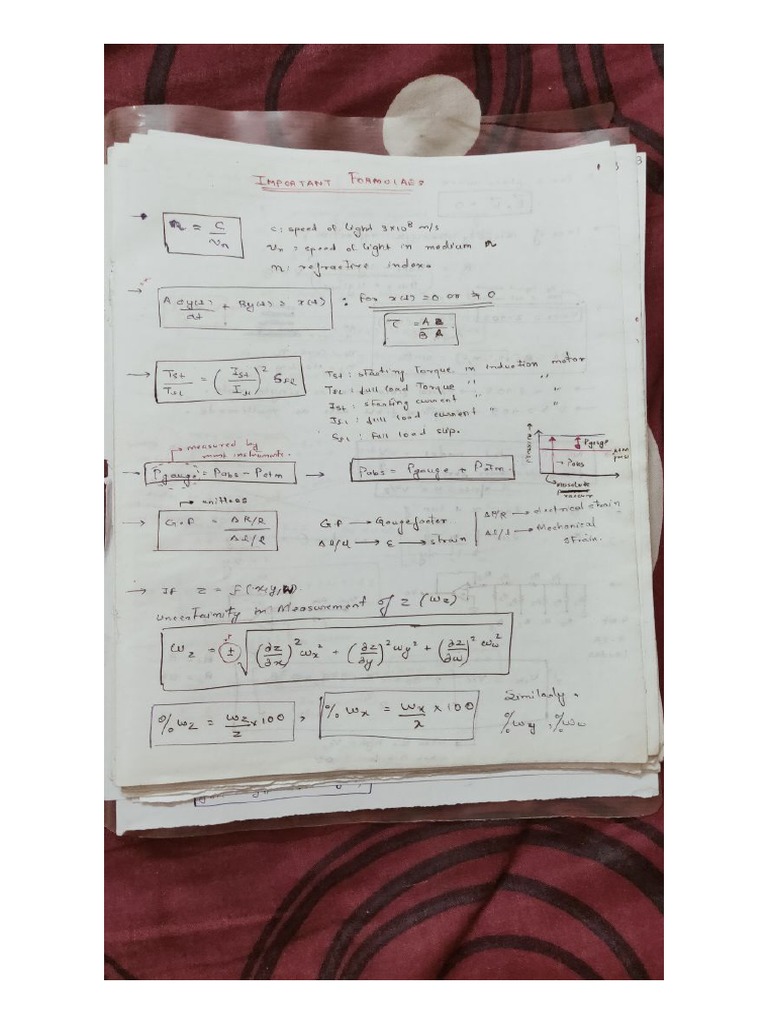The preparation of optical instrumentation for the Graduate Aptitude Test in Engineering (GATE) in India requires a meticulous approach, incorporating both theoretical knowledge and practical skills. Candidates must navigate an array of topics, ranging from the fundamentals of optics to advanced instrumentation techniques. This article endeavours to elucidate effective strategies and methodologies for preparation, thereby equipping aspiring students with the requisite tools to excel in this competitive examination.
1. Understanding the GATE Examination Framework
The first step in preparing for GATE is comprehending the examination structure and syllabus, particularly pertaining to the field of optical instrumentation. The GATE examination is divided into multiple sections, including General Aptitude, Engineering Mathematics, and the core subject. For optical instrumentation, it is imperative to delve into topics such as geometric optics, wave optics, optical measurement systems, and sensor technologies. Familiarity with the examination format—comprising multiple-choice questions (MCQs) and numerical answer type questions (NATs)—will aid in devising a focused study plan.
2. Acquiring Comprehensive Study Materials
In the realm of optical instrumentation, the selection of study materials can significantly influence the learning curve. Candidates should seek textbooks and reference materials that cover both theory and applications extensively. Recommended texts include those by renowned authors such as Jenkins and White for geometric optics, and Siegman for laser optics. Furthermore, integrating lecture notes, online resources, and tutorial videos can augment understanding, especially for complex topics like interferometry and diffraction.
3. Engaging with Practical Laboratory Work
Theoretical knowledge alone will not suffice. Engaging in practical laboratory work is paramount for cultivating a deep understanding of optical instrumentation. Familiarization with common optical devices—lenses, prisms, beam splitters, and optical sensors—will enhance hands-on skills. Experimentation with setups such as Michelson interferometers or modulating laser systems provides invaluable experiential learning. Keeping a detailed lab journal can help in revisiting experiments and documenting findings, thus solidifying practical understanding.
4. Mastering Problem-Solving Techniques
Success in GATE hinges upon the ability to solve problems efficiently. Candidates should practice a diverse range of problems, particularly those that have appeared in previous years’ examinations. Focusing on numerical problem-solving will aid in developing skills necessary for tackling numerical answer type questions effectively. Moreover, learning to approach problems methodically—sketching diagrams, formulating equations, and applying principles of optics—will enhance analytical capabilities and boost confidence.
5. Formulating a Study Schedule
Time management is critical in the preparation phase. Creating a well-structured study schedule allows for systematic coverage of the syllabus while allowing time for revision and practice tests. It is advisable to allocate specific time slots for each topic, interspersed with breaks to optimize concentration and retention. Regular self-assessment through quizzes and mock tests will help gauge progress and identify areas requiring further focus.
6. Collaborative Learning and Peer Discussion
Collaboration can foster a deeper understanding of challenging concepts. Engaging with peers in study groups facilitates discussion and the exchange of ideas regarding optical instrumentation. Many concepts—such as coherence, polarization, and optical noise—benefit from diverse insights. Organizing group study sessions can also introduce competitive elements, motivating members to stay committed and engaged with the material.
7. Utilizing Online Platforms and Resources
In the digital age, online resources have become indispensable for effective preparation. Numerous platforms offer educational videos, interactive simulations, and quizzes that cater specifically to optical instrumentation and GATE preparation. Websites hosting past examination papers provide a realistic framework for candidates to practice under timed conditions. Additionally, various GATE-specific applications can facilitate on-the-go learning and keep candidates informed about the latest examination patterns and trends.
8. Developing Exam-Day Strategies
As the examination date approaches, formulating strategies for the exam day is essential. Candidates must familiarize themselves with the examination centre, the necessary items to bring, and the procedures involved in the examination. It is wise to prepare for potential scenarios, including managing unexpected questions or time constraints. Practicing under exam conditions—time-limited tests—will instil confidence and help develop a strategy for weighing which questions to attempt based on familiarity and perceived difficulty.
9. Reflecting on Feedback and Continuous Improvement
Post-examination reflection is crucial for continuous improvement. Candidates should analyse their performance, identifying strengths and weaknesses in their understanding of optical instrumentation principles. Engaging with feedback from mock tests and peer discussions will provide insight into areas demanding further review. Emphasizing adaptability and growth will aid in refining study methodologies for future endeavors, including retaking the examination if necessary.
10. Cultivating a Growth Mindset
Lastly, cultivating a growth mindset is integral to overcoming challenges and maintaining motivation throughout the preparation process. Recognizing that mastery of optical instrumentation is a journey, rather than an immediate destination, allows for embracing efforts and resilience. Positivity and an objective approach to failures can promote a deeper sense of engagement with the material, ultimately leading to success in the GATE examination.
In conclusion, preparation for the GATE examination in optical instrumentation necessitates a balanced approach that harmonizes theoretical study with practical application and personal reflection. By following these comprehensive strategies, candidates will be well-equipped to navigate the challenges of the examination and emerge with a robust understanding of the principles underlying optical instrumentation.










